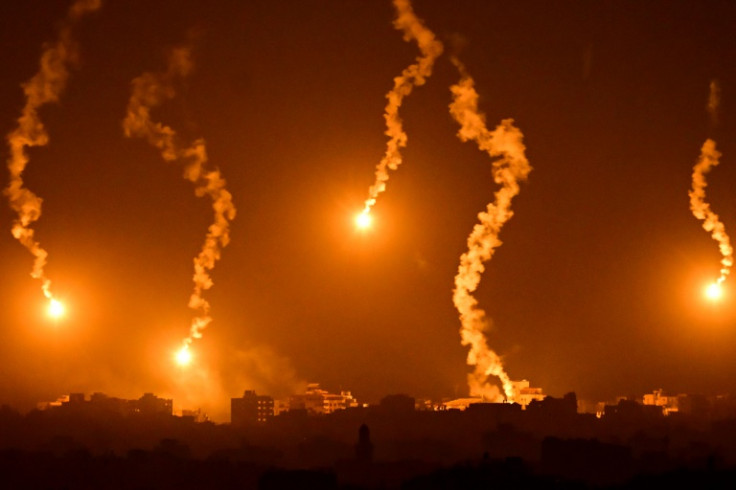Iran Wants India To 'Use All Its Capacities To End The Zionist Crimes' Against Gaza

KEY POINTS
- Indian Prime Minister Narendra Modi and Iranian President Ebrahim Raisi spoke by phone Monday
- The two leaders exchanged views on the situation in the West Asia region and the Israeli bombardment of Gaza
- They also reviewed the progress of the bilateral cooperation between India and Iran
India's Prime Minister Narendra Modi spoke with Iranian President Ebrahim Raisi by phone Monday and the latter said he expects New Delhi to use all its capacities to end the Israeli bombardment of Gaza.
The Indian prime minister expressed "deep concern at the terrorist incidents, violence and loss of civilian lives," while the Iranian leader asserted that the killing of the Palestinian people "has infuriated all the free nations of the world."
"Today, India is expected to use all its capacities to end the Zionist crimes against the oppressed people of Gaza," Raisi said. "The continuation of the killing of the Palestinian people has infuriated all the free nations of the world and this killing will have extra-regional consequences."
The Iranian president also said the killing of oppressed and innocent women and children, in addition to the Israeli attacks on schools, hospitals, mosques, churches and neighborhoods where scores of Palestinians live, is "condemned and unacceptable."
"Palestinian resistance groups have a legitimate right to confront the occupation of the usurping Zionist regime and all countries must support the Palestinian people's struggle for freedom from oppression," Raisi said.
An official statement from the Indian side said the two leaders exchanged views "on the difficult situation in the West Asia region and Israel-Hamas conflict."
Modi "expressed deep concern at the terrorist incidents, violence and loss of civilian lives. He reiterated India's longstanding and consistent position on the Israel-Palestine issue," the statement read.
"President Raisi shared his assessment of the situation," the statement added. "Both the leaders expressed emphasised [sic] on the need for preventing escalation, ensuring continued humanitarian aid and early restoration of peace and stability."
The two leaders also reviewed and acknowledged the progress of the bilateral cooperation between India and Iran, which includes work on the Chabahar port in Iran.
Since Israel declared war and began pummeling Gaza in retaliation for Hamas' attack on Oct. 7, Modi has spoken to Israeli Prime Minister Benjamin Netanyahu, Palestinian President Mahmoud Abbas and Jordan's King Abdullah II.
New Delhi only began establishing diplomatic relations with Israel in 1992, and since then, it has been walking a fine line of supporting the Palestinian cause of an independent statehood while strengthening India-Israel ties on the side.
"India has historically been supportive of the Palestinian position and voted in line with it at the UN. But since the 1980s and 90s India has been developing closer diplomatic and economic relations with Israel, a process which didn't start under Modi but certainly accelerated with him," Guy Burton, a visiting fellow at the LSE Middle East Centre, previously told International Business Times.
"Indeed, you could arguably say that India and Israel have become closer than India is with the Palestinians these days. The two share similar sentiments when it comes to treating Muslims and political Islam with suspicion," he added.
The ties between India and the Middle East are also strengthening, which also means New Delhi has much to lose if it appears to have tilted toward Israel.
Hence, highlighting Modi's talks with Jordan's King could be a way of "countering the idea that India is too close to Israel, especially given widespread Arab anger at Israel's military actions in Gaza," Burton added.
© Copyright IBTimes 2025. All rights reserved.






















